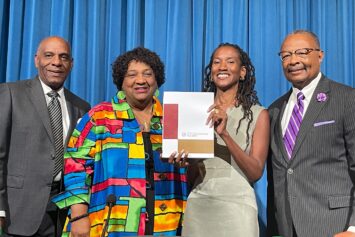As more and more cities and institutions start to address the issue of reparations or repair to the Black community for the legacy of slavery and systemic racist policies, the overwhelming call tends to be for federal reparations.
Reparations scholars and activists argue that the only true way to close the racial wealth gap is through monetary reparations from the federal government to Black Americans who can trace slave ancestry.

But how much would reparations recipients get?
“Financial reparations will close the wealth gap. The idea is to provide reparations recipients an amount sufficient to close the wealth gap. We estimate this will cost about $14 trillion, on the low side. The premise is the federal government would spend a sufficient amount to close the wealth gap,” economist William Darity, professor of public policy at Duke University, told Finurah’s Money Talk series. Darity has studied the concept of reparations for more than 30 years. He co-authored the book “From Here to Equality: Reparations for Black Americans in the Twenty-First Century” with folklorist A. Kirsten Mullen.
When you break that amount down, Darity explains it would come to approximatey $840,000 per eligible household or $350,000 per person.
“We tried to estimate what the magnitude is of the average difference of wealth between Blacks and whites in the United States, and per person is about $350,000,” said Darity. “There are approximately 40 million Black Americans we think would be eligible for reparations; that would come to about $14 trillion.”
And while there have been regional reparations programs, Darity says “true” reparations must be on a federal level. Darity says reparations are a moral obligation for the government and a debt 155 years overdue as freed Black slaves were never given the 40 acres they were promised.
“The United States federal government is the only one that can afford this type of bill,” he pointed out. To the argument that the bill carries a high price tag, Darity explained payments don’t have to be in a lump sum; money can be distributed over a period of time.




